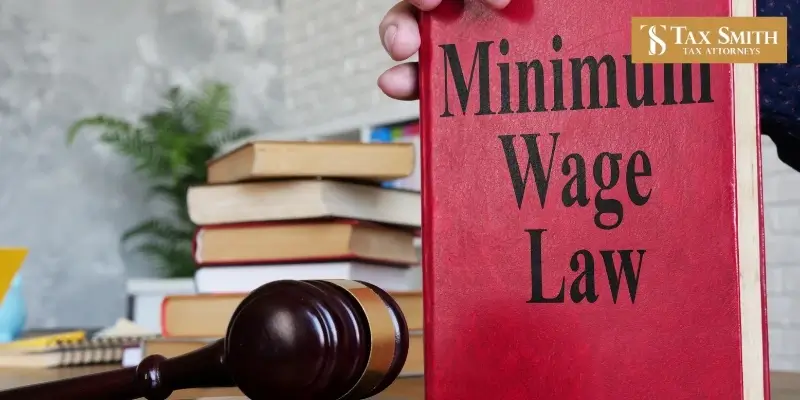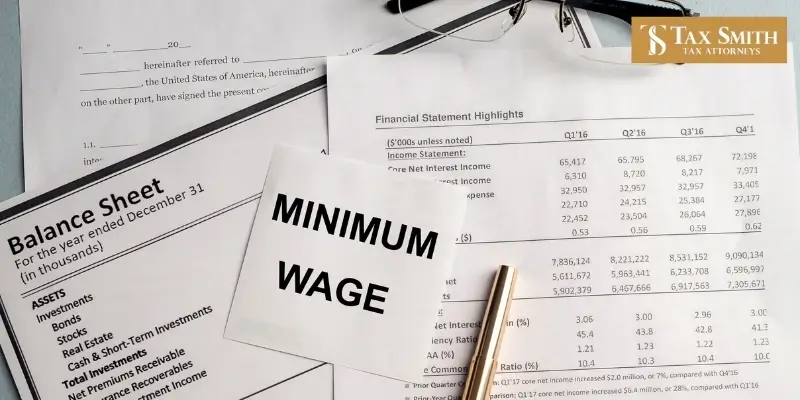Losing a portion of your wages to a creditor can be frustrating and financially straining. Many individuals who have debt or are dealing with garnishment wonder: How much can be garnished from your paycheck in Florida? There are state and federal limitations on wage garnishment, but these limitations may differ depending on the type of debt you owe or the creditor you owe it to.
What Earnings Can Be Affected by Wage Garnishment?
Your wages can be garnished under federal law, whether you earn an hourly wage or a yearly salary. Wage garnishment can also affect many types of governmental benefits, although these benefits may have different limitations for garnishment. If you are self-employed, your accounts receivable could be garnished to cover your debt.

The earnings that could be garnished also include:
- Commissions
- Bonuses
- Profit-sharing
- Periodic pension payments
- Retroactive pay
- Safety, perfect attendance, or cash awards
- Employment relocation incentive payments
- Retirement program periodic payments
- Employment-based disability plans
- Holiday work pay
- Wage replacement workers’ compensation benefits, both periodic and lump sum
- Termination or severance pay
- Tip credit claimed by the employer
- Front pay or back pay from insurance settlements
If your income is not considered garnishable income, this can limit how much creditors are allowed to take from you.
How Much Can Most Creditors Take From My Paycheck?
Even if all your income is potentially subject to garnishment, this does not mean your entire paycheck can be taken through garnishment. There are federal limitations that state how much creditors can take. No matter how many creditors are requesting the garnishment of an individual’s wages, the amount that is being garnished each week cannot exceed the lower of the following:
- 25% of disposable income
- The amount of disposable income that is more than 30 times the minimum wage
Disposable earnings are defined as the wages you receive after legally required deductions, such as state, federal, and local taxes, including Federal Insurance Contributions Act (FICA) taxes. If the deduction is not legally required, like healthcare or retirement plan contributions, it is still counted in your disposable earnings.
For debt caused by unpaid child or spousal support, unpaid state or federal taxes, or bankruptcy court orders, the limitations are different.
Garnishment Limitations on Non-Tax Federal Debts
Debts that are owed to the federal government, other than unpaid taxes, include debts such as federal student loans. Garnishment to recover these debts is limited to 15% of your income.
Garnishment and Levy Limitations for Taxes
Your wages can also be garnished by the Internal Revenue Service (IRS) or state tax agency if you owe taxes, and these agencies also don’t require court approval. There are some assets that are exempt from a levy made by the IRS, including:
- Minimum exemptions for certain income that does not exceed a set amount
- Unemployment benefits
- Workers’ compensation payments
- Service-connected disability benefits
- Some pensions or annuity payments, like those under the Railroad Retirement Act
- Clothes and schoolbooks are necessary for you and your family
- Personal effects, fuel, food, and furniture that don’t exceed $6,250 in value
- Books and tools needed for employment in a profession that do not exceed $3,125 in value
- Undelivered mail
- Judgments by the court to support minor children
- Certain public assistance payments
There may be other limitations on the amount the IRS can levy from your wages, depending on your unique circumstances. A wage garnishment tax attorney can help you review the specifics of your income and debt.
Florida Garnishment Limitations
Florida law has a unique exemption that could prevent garnishment on some or all of your wages. This is the head of household exemption. If your disposable earnings are less than $750 a week and you provide over half the financial support for a dependent, your wages cannot be garnished. For disposable income over $750, while providing that same financial support, you must agree to garnishment. This agreement must be in writing.
You must take action to claim this exemption. If you do not file for the exemption within the limited time period, your wages will likely be garnished even if you meet the exemption qualifications.

FAQs About Wage Garnishment from Your Paycheck in Florida
What Is the Maximum Garnishment Allowed in Florida?
The maximum garnishment allowed in Florida under federal law is either 25% of your wages or the amount that your disposable income goes over 30 times the minimum wage, or 217.50 weekly, whichever of those two amounts is lower. However, these limits do not apply to every creditor and type of debt. Tax agencies have unique limits, and so do debts caused by unpaid child or spousal support.
How Can I Stop Wage Garnishment Immediately in Florida?
You can stop wage garnishment quickly in Florida by repaying the debt you owe, by filing for an exemption that prevents garnishment, or by filing for bankruptcy. It is crucial to talk with an attorney to understand the benefits and drawbacks of each of these options. While bankruptcy can put an immediate stay on your assets, it may not last very long. If you have the financial ability to pay back your debt, you should.
How Can You Protect Yourself From Garnishment?
The simplest way to protect your finances and your wages from being garnished is to avoid debt that you can’t financially address and to address it quickly if you are in debt. The longer you wait, the higher the costs will likely be as interest and even penalties grow. If you cannot financially address your debt, then it is important to protect yourself from garnishment by talking with the creditor about other options, such as a payment plan.
How Can You Avoid Wage Garnishment in Florida?
To avoid wage garnishment in Florida, it is important to keep in contact with creditors when they request payment to find a solution. You should also work with an attorney with relevant experience to help you review your options for settling debt. This could include applying for a head of household exemption, negotiating to settle the debt, or negotiating a payment plan. You could even challenge the legality of the garnishment in court.
Get a Skilled Tax Attorney Today
At TaxSmith, LLC, we have worked for decades in tax law, helping taxpayers navigate their debt and address issues like wage garnishment. Contact our firm today to protect your interests.








